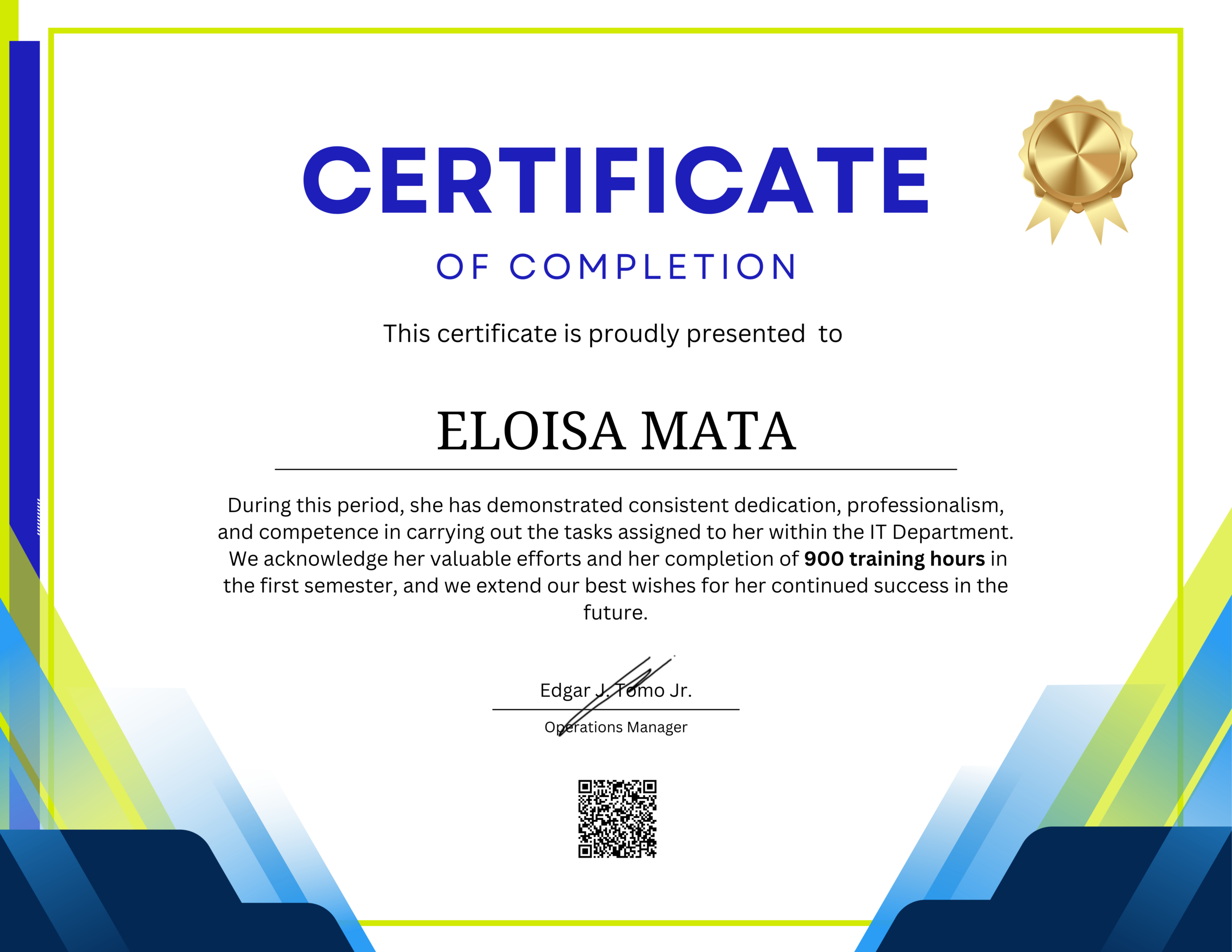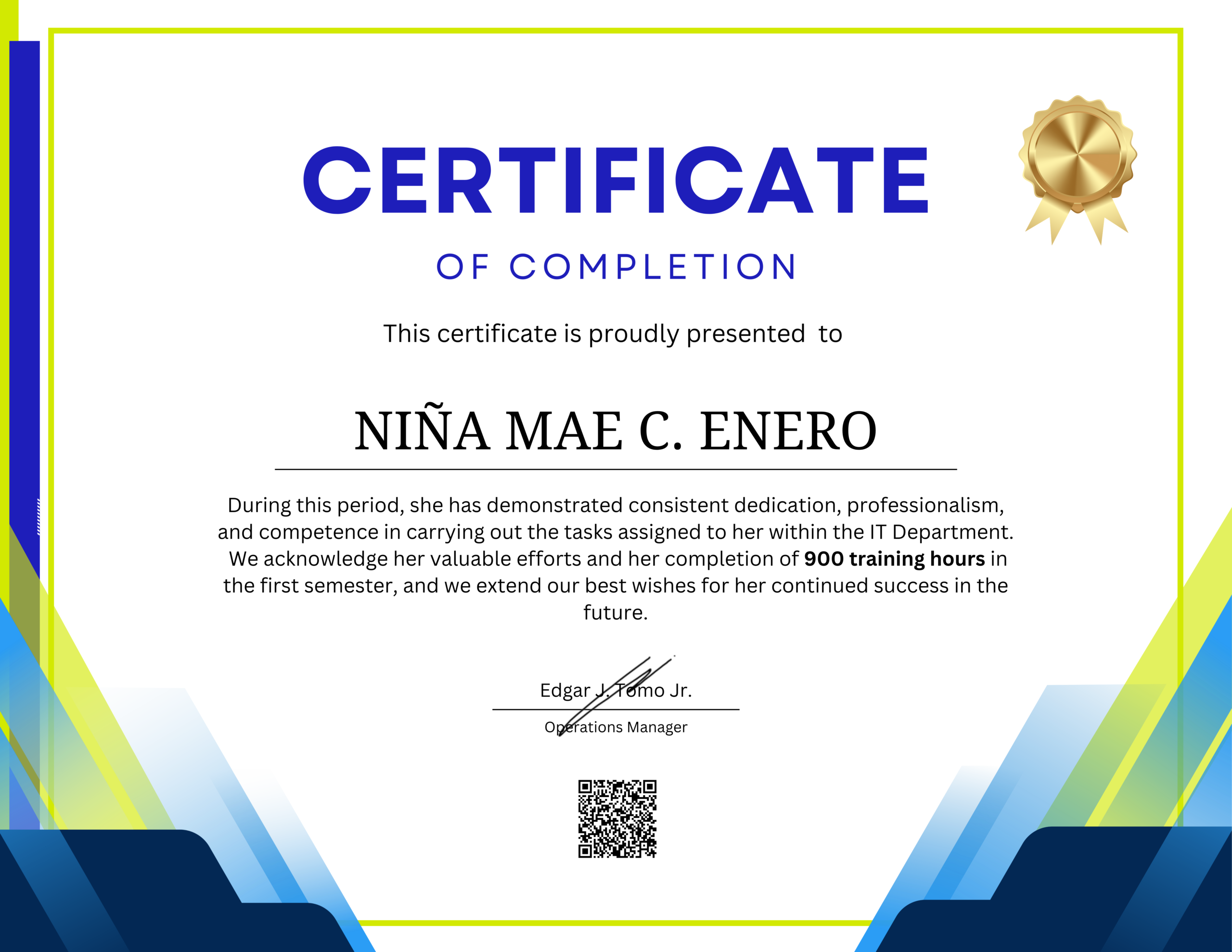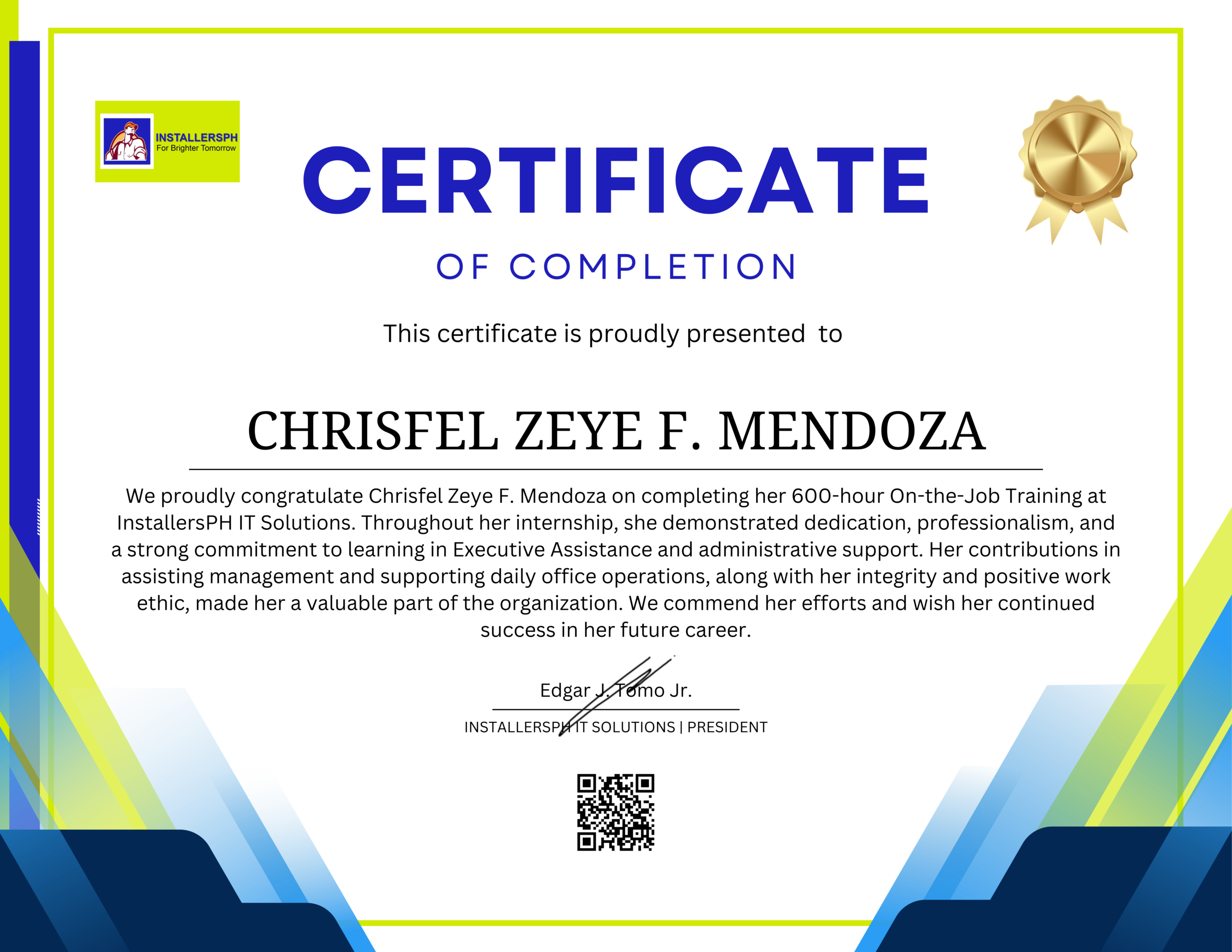The On-the-Job Training Experience of Niña Mae C. Enero Acknowledging Dedication in IT On-the-Job Training. During her on-the-job training period, she demonstrated consistent dedication and a strong sense of responsibility in fulfilling …
How to properly select the best CCTV Camera for residential homes?

Introduction
In an era where security is of paramount importance, residential homeowners are increasingly turning to Closed-Circuit Television (CCTV) cameras to safeguard their homes and loved ones. Selecting the right CCTV camera is a crucial decision that involves considering various factors to ensure optimal security coverage. This comprehensive guide aims to provide homeowners with the information they need to make an informed choice when choosing the best CCTV camera for their residential properties.
Understanding the Need for CCTV Cameras in Residential Areas
The surge in crime rates and the need for enhanced security have led to a growing demand for CCTV cameras in residential areas. These surveillance systems serve as a deterrent to potential intruders and provide homeowners with peace of mind, knowing that their property is under constant watch. Additionally, CCTV cameras play a vital role in recording incidents, aiding law enforcement in investigations and providing evidence in the event of criminal activities.
Key Considerations for Selecting CCTV Cameras
1. Camera Types and Features
The first step in selecting the right CCTV camera for your home is understanding the various types available. There are several camera types, each designed for specific purposes:
a. Bullet Cameras:
Ideal for long-distance viewing, these cameras are cylindrical in shape and are best suited for outdoor surveillance.
b. Dome Cameras:
With a sleek and inconspicuous design, dome cameras are suitable for both indoor and outdoor use. They are less noticeable, making them less likely targets for vandalism.
c. PTZ (Pan-Tilt-Zoom) Cameras:
These cameras offer remote control for panning, tilting, and zooming, providing a broader surveillance range. PTZ cameras are ideal for large areas or properties with varying points of interest.
Additionally, consider features such as high-resolution video, night vision capabilities, and weather resistance to ensure optimal performance in different conditions.
2. Resolution and Image Quality
Optimal image quality is crucial for effective surveillance. Higher resolution cameras capture more detailed images, enabling better identification of individuals and objects. Aim for cameras with at least 1080p resolution, and if budget allows, consider 4K resolution for even sharper images.
3. Night Vision Capabilities
Criminal activities often occur during the night, making night vision capabilities essential. Infrared (IR) technology enables CCTV cameras to capture clear footage in low-light or complete darkness. When selecting a camera, check the specified night vision range and ensure it aligns with your property’s requirements.
4. Field of View (FOV)
The field of view determines the area a CCTV camera can cover. Assess your property’s layout and select cameras with the appropriate FOV to ensure comprehensive coverage. Wide-angle lenses are suitable for open areas, while narrow-angle lenses work well for focusing on specific points of interest.
5. Storage Options
CCTV cameras record footage that needs to be stored for future reference. Consider cameras with ample storage capacity or those compatible with external storage devices, such as Network Video Recorders (NVRs) or cloud storage services. This ensures that crucial footage is securely stored and easily accessible when needed.
6. Motion Detection and Alerts
Motion detection features enhance the efficiency of CCTV cameras by triggering recording when movement is detected. Look for cameras with customizable motion detection settings and the ability to send real-time alerts to your mobile device or email. This ensures that you stay informed of any suspicious activity on your property.
7. Weather Resistance
For outdoor surveillance, weather-resistant cameras are essential to withstand varying weather conditions. Ensure that the selected cameras have an Ingress Protection (IP) rating suitable for the environmental challenges in your area.
8. Remote Monitoring and Accessibility
Modern CCTV systems offer remote monitoring capabilities, allowing homeowners to view live footage or playback recordings from anywhere with an internet connection. Choose a system with user-friendly mobile apps or web interfaces for easy accessibility and control.
9. Power Source and Installation Ease
Consider the power requirements of the CCTV cameras and choose between wired and wireless options based on your preferences. Wired cameras typically require professional installation but ensure a constant power supply. Wireless cameras offer more flexibility but may require battery changes or regular charging. Evaluate the ease of installation and choose a system that aligns with your technical expertise or the assistance available for setup.
10. Two-Way Audio
Some CCTV cameras come equipped with two-way audio functionality, allowing homeowners to communicate with individuals near the camera. This feature can be beneficial for monitoring and deterring intruders or for general communication within the property. Assess the need for two-way audio and choose cameras that offer this functionality if it aligns with your security goals.
11. Smart Home Integration
Integration with smart home devices enhances the overall security ecosystem. Look for CCTV cameras that are compatible with popular smart home platforms such as Google Home or Amazon Alexa. This integration allows you to control and monitor your security system alongside other smart devices, providing a seamless and interconnected home security experience.
12. Scalability
Consider the scalability of the CCTV system to accommodate future expansions or changes in security requirements. Opt for systems that allow easy integration of additional cameras or upgrades without significant hassle or cost. Scalable systems provide the flexibility to adapt to evolving security needs and changing property layouts.
13. Privacy Features
Privacy is a paramount concern, and it’s essential to choose CCTV cameras with built-in privacy features. Look for cameras that offer options such as scheduled recording, motion detection zones, and privacy masking. These features allow you to customize surveillance settings, ensuring that the cameras only capture footage in designated areas and during specific times, respecting the privacy of neighbors or passersby.
14. Durability and Build Quality
The durability of CCTV cameras is crucial, especially for outdoor installations. Evaluate the build quality, materials used, and the camera’s resistance to vandalism and tampering. A sturdy, well-built camera ensures longevity and reliability, providing continuous protection for your residential property.
15. Cost and Budget Considerations
Establish a realistic budget for your CCTV camera system, considering not only the upfront costs but also any additional expenses such as installation fees, maintenance, and potential subscription fees for cloud storage services. While it’s essential to invest in a quality system, there are various options available at different price points. Conduct thorough research to find a balance between affordability and the features that meet your security needs.
Conclusion:
Selecting the best CCTV camera for residential homes involves a thoughtful consideration of camera types, features, and specific requirements. By prioritizing factors such as resolution, night vision, field of view, storage options, motion detection, weather resistance, and remote accessibility, homeowners can create a robust surveillance system tailored to their needs.
Investing in a high-quality CCTV camera not only enhances the security of your residential property but also provides invaluable peace of mind. As technology continues to advance, staying informed about the latest developments in CCTV camera technology will empower homeowners to make informed decisions and keep pace with evolving security needs.
Related Articles
The On-the-Job Training Experience of Niña Mae C. Enero Acknowledging Dedication in IT On-the-Job Training. During her on-the-job training period, she demonstrated consistent dedication and a strong sense of responsibility in fulfilling …
The On-the-Job Training Experience of Chrisfel Zeye F. Mendoza Introduction. On-the-Job Training (OJT) plays a vital role in preparing students for the professional world by allowing them to apply academic knowledge in …



